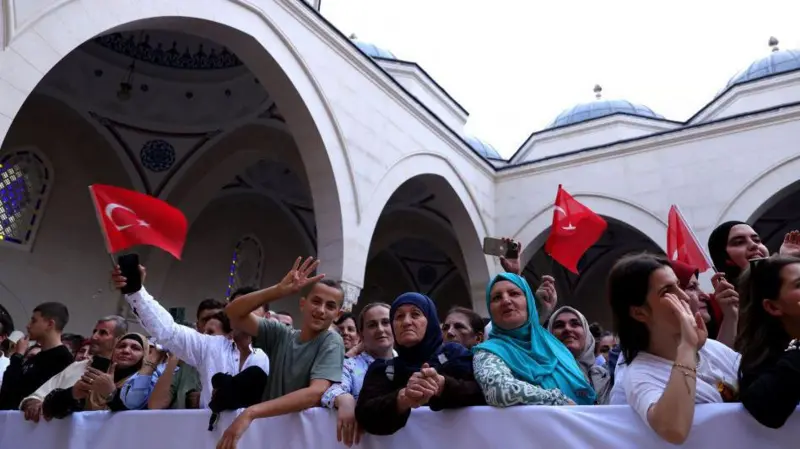Turkey’s Shifting Balkan Policy: From Cultural Diplomacy to Military Partnerships amid Kosovo-Serbia Tensions
Turkey’s approach to the Balkans has undergone a significant transformation over the past decade, evolving from soft-power-driven cultural diplomacy to a strategy centered on defense cooperation and economic influence. This shift has become increasingly evident in the context of the latest Kosovo-Serbia tensions, triggered by Turkey’s recent delivery of kamikaze drones to Kosovo. Though initially prompting sharp rhetoric from Belgrade, Serbian President Aleksandar Vučić quickly softened his tone, easing the short-lived crisis.
According to a report by BBC Turkish, Turkey’s role in the region today reflects a strategic pivot. In the 2010s, under then-Prime Minister Ahmet Davutoğlu, Ankara emphasized cultural and religious ties, promoting Turkish language education and supporting local communities through scholarships and restoration projects. However, following the 2016 coup attempt, President Recep Tayyip Erdoğan increasingly emphasized economic investments and security partnerships, seeking deeper political leverage through defense cooperation rather than purely cultural initiatives.
In recent years, Turkey has expanded its defense footprint across the Balkans. Countries such as Albania, Kosovo, Romania, and even Serbia have signed military framework agreements or purchased Turkish defense technology, including drones and armored vehicles. A landmark example was the 2024 contract between Koç Holding’s Otokar and Romania’s Ministry of Defense for approximately €857 million worth of armored vehicles. Analysts note that such deals symbolize Ankara’s transition from scholarships and cultural centers to military-industrial influence. As Serbian security expert Vuk Vuksanović observed, local defense cooperation often yields “stronger political impact” than soft-power programs.
While defense exports attract attention, Turkey is also bolstering its economic visibility in the region. Turkish construction and energy firms are actively involved in high-profile projects, such as the Belgrade–Sarajevo highway, Romanian gas pipelines, and a variety of transportation and infrastructure ventures. Mehmet Uğur Ekinci of the SETA Foundation emphasizes that Ankara aims to be “an effective and visible actor in every field,” from mining and telecommunications to tourism and healthcare.
The drone deliveries to Kosovo exemplify the delicate balancing act Ankara faces. Kosovo views Turkish drones and the planned local ammunition plant, set to produce 20 million rounds annually by 2026, as essential steps toward building an independent, NATO-compatible defense capability. Serbia, backed by Russia, continues to reject Kosovo’s 2008 declaration of independence and frames any Kosovo military buildup as a direct threat. Yet, despite these flashpoints, Turkey and Serbia have managed to maintain robust trade and political dialogue, with Erdoğan describing bilateral ties as enjoying a “golden era” during his 2024 Belgrade visit.
Turkey’s influence is amplified by Erdoğan’s personalized diplomacy, which allows Ankara to engage simultaneously with Serbs, Albanians, and other Balkan communities while preserving relationships with both Western powers and Russia. This multi-vector approach helps Turkey navigate a region still defined by ethnic and religious sensitivities. Analysts warn, however, that overemphasizing nationalist or religious agendas could provoke a backlash from regional states wary of political Islam or Turkish assertiveness.
Ultimately, Turkey’s evolving Balkan policy reflects a pragmatic blend of hard and soft power, seeking to secure a durable presence in a region critical to both European stability and Ankara’s broader geopolitical ambitions.
Photo: Getty Images, BBC Turkish
